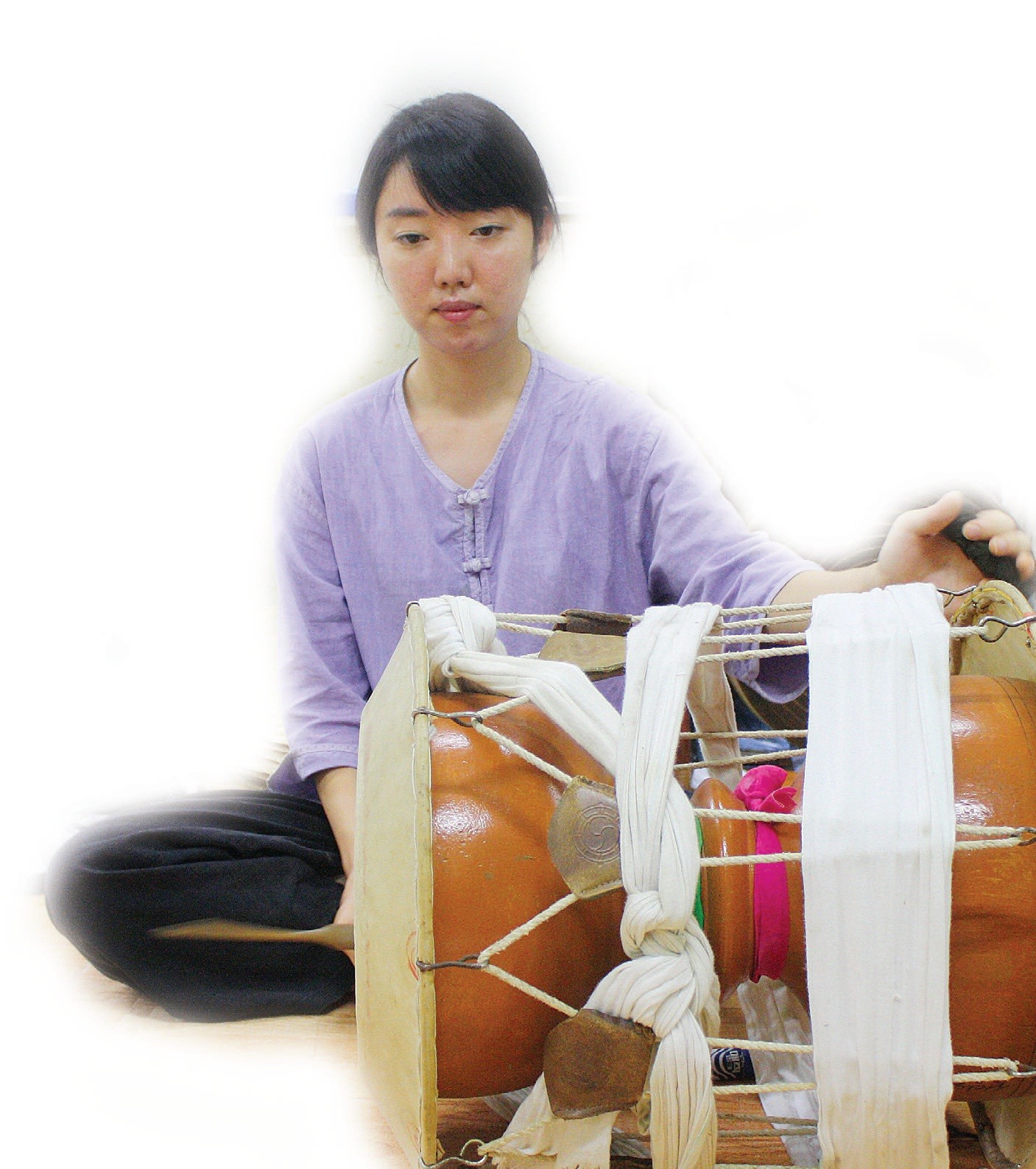Park Song-ei, continuing traditional values with music
DRESSED IN plain hanbok, Park Song-ei (Jr., Dept. of Nursing) greeted The Yonsei Annals reporters with a smile and a drumstick in her hand. Park is learning Seongpo nong-ak* from Master Lee In-su, a traditional pungmul* melody of Iksan that could have died out without Master Lee. Surrounded by several janggu* and kkwaenggwari* rolling around on the floor, Park modestly unravels her story, explaining her passion of the last five years.
How it all started
Before I came to attend Yonsei, I saw The King and the Clown and was mesmerized by the pungmul presented in the movie. Once school started, I joined Tte, a pungmul dongahree, but was disappointed by the differences between the movie and Tte. However, my thoughts changed when the dongahree members went to Gochang to learn pungmul. For the teachers, in their thirties or forties, pungmul was their way of life. What I saw through them blew me away again: pungmul had an ineffable charm that matches the Korean sentiment.
When I was introduced to Seongpo nong-ak through a friend, I was impressed by Master Lee's style. His melody, following his village's century-old tradition, was different from the modern pungmul tunes. Fascinated by his music, I started learning from the master, a stubborn 84-year-old man. He was harshly critical and did not know how to read the score of Korean music, Karakbo. All he did was play a passage and turn to us to say, "Play this." So, initially, it was difficult to follow him, but the lack of Karakbo helped me learn his way of expression, as I listened carefully and heard nuances that musical scores cannot show.
The bumps along the road
My parents were against my learning pungmul because I did not pay attention to my grades. Even when I went to Iksan to learn Seongpo nong-ak, my parents did not give me any support. For a year I had to live off the income from performances. The three other students and I only got about ₩550,000 at most per month. The worst part of it was that the income was not steady: we could not even expect to have any performances each month. Without the help from the parents of one of the students, I do not think we could have done it.
Looking beyond the present
A few years ago, I wanted to make a living out of pungmul. Now, I plan to learn from the Master until he passes away but finish my studies here at Yonsei as well, to leave more options open. I do not know what I will do in the future but I, along with my pungmul friends, want to create a self-sustaining community that cultivates its own food, makes its own houses, and stands independent from society. The three other students I studied Seongpo nong-ak with are daughters of farmers. By living with them, I realized how selfish my way of thinking was. Unlike me, they cared about other people and worked hard on even troublesome duties. Pungmul reflects this natural, selfless thinking. It carries the message from our ancestors who wanted to say: be together, love one another, and take care of each other. I want to make a community that embodies those ideals.
*nong-ak: Traditional Korean folk music enjoyed by farmers and farming communities in the past that is usually played by a pungmul band
*pungmul: Korean folk music tradition that includes percussion instruments, dancing, and singing
*janggu: A drum with an hourglass-shaped body and two heads used in Korean folk music
*kkwaenggwari: A small flat gong used in Korean folk music


